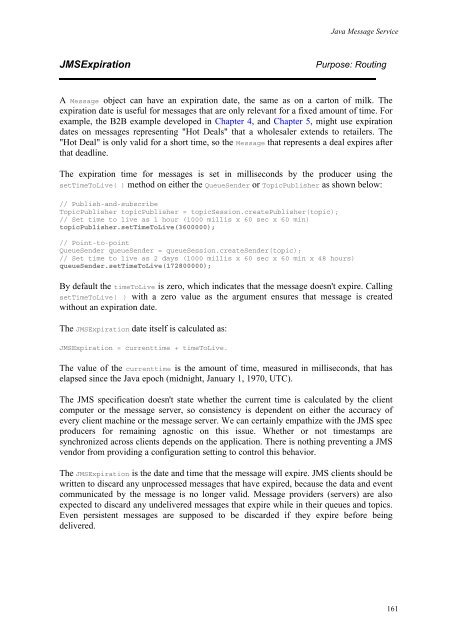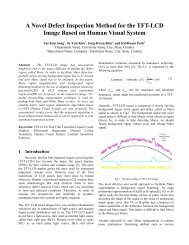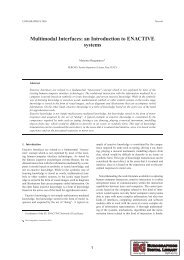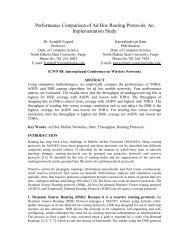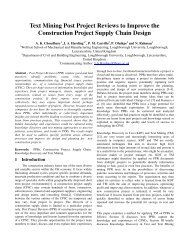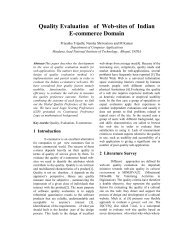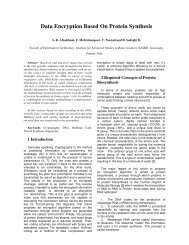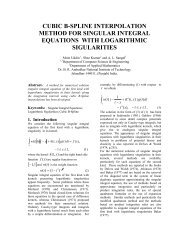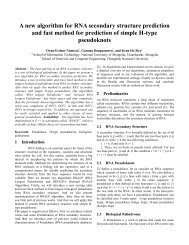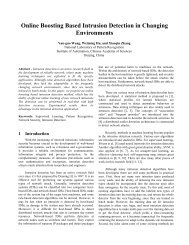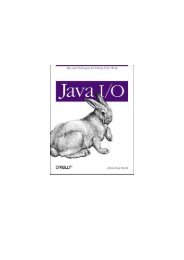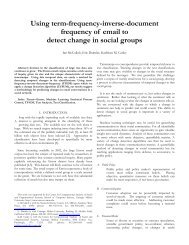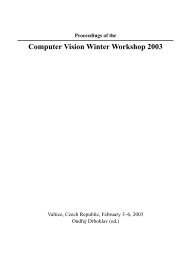O'Reilly - Java Message Service
O'Reilly - Java Message Service
O'Reilly - Java Message Service
You also want an ePaper? Increase the reach of your titles
YUMPU automatically turns print PDFs into web optimized ePapers that Google loves.
<strong>Java</strong> <strong>Message</strong> <strong>Service</strong><br />
JMSExpiration Purpose: Routing<br />
A <strong>Message</strong> object can have an expiration date, the same as on a carton of milk. The<br />
expiration date is useful for messages that are only relevant for a fixed amount of time. For<br />
example, the B2B example developed in Chapter 4, and Chapter 5, might use expiration<br />
dates on messages representing "Hot Deals" that a wholesaler extends to retailers. The<br />
"Hot Deal" is only valid for a short time, so the <strong>Message</strong> that represents a deal expires after<br />
that deadline.<br />
The expiration time for messages is set in milliseconds by the producer using the<br />
setTimeToLive( ) method on either the QueueSender or TopicPublisher as shown below:<br />
// Publish-and-subscribe<br />
TopicPublisher topicPublisher = topicSession.createPublisher(topic);<br />
// Set time to live as 1 hour (1000 millis x 60 sec x 60 min)<br />
topicPublisher.setTimeToLive(3600000);<br />
// Point-to-point<br />
QueueSender queueSender = queueSession.createSender(topic);<br />
// Set time to live as 2 days (1000 millis x 60 sec x 60 min x 48 hours)<br />
queueSender.setTimeToLive(172800000);<br />
By default the timeToLive is zero, which indicates that the message doesn't expire. Calling<br />
setTimeToLive( ) with a zero value as the argument ensures that message is created<br />
without an expiration date.<br />
The JMSExpiration date itself is calculated as:<br />
JMSExpiration = currenttime + timeToLive.<br />
The value of the currenttime is the amount of time, measured in milliseconds, that has<br />
elapsed since the <strong>Java</strong> epoch (midnight, January 1, 1970, UTC).<br />
The JMS specification doesn't state whether the current time is calculated by the client<br />
computer or the message server, so consistency is dependent on either the accuracy of<br />
every client machine or the message server. We can certainly empathize with the JMS spec<br />
producers for remaining agnostic on this issue. Whether or not timestamps are<br />
synchronized across clients depends on the application. There is nothing preventing a JMS<br />
vendor from providing a configuration setting to control this behavior.<br />
The JMSExpiration is the date and time that the message will expire. JMS clients should be<br />
written to discard any unprocessed messages that have expired, because the data and event<br />
communicated by the message is no longer valid. <strong>Message</strong> providers (servers) are also<br />
expected to discard any undelivered messages that expire while in their queues and topics.<br />
Even persistent messages are supposed to be discarded if they expire before being<br />
delivered.<br />
161


